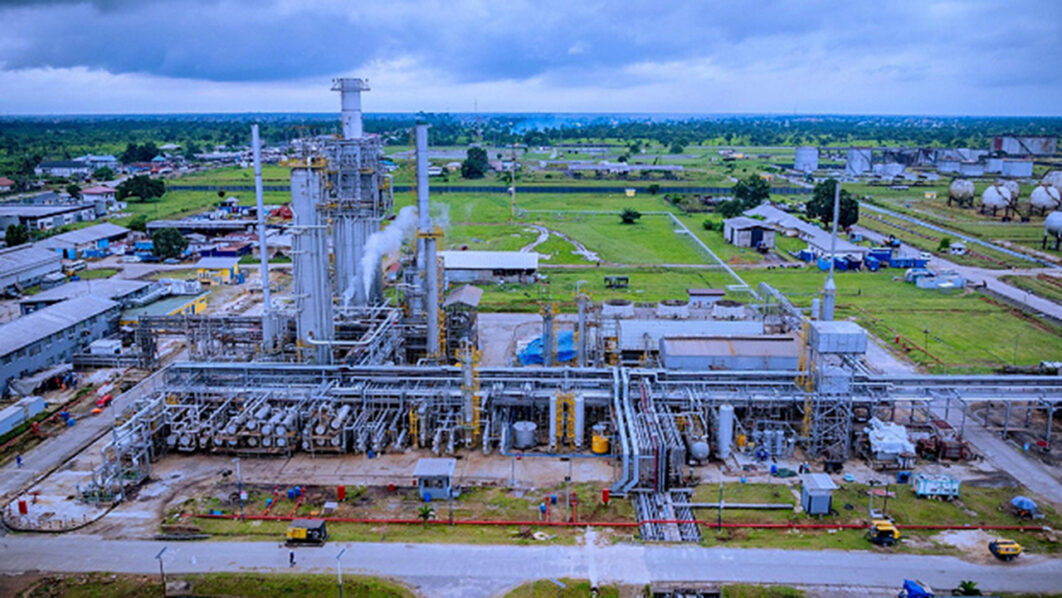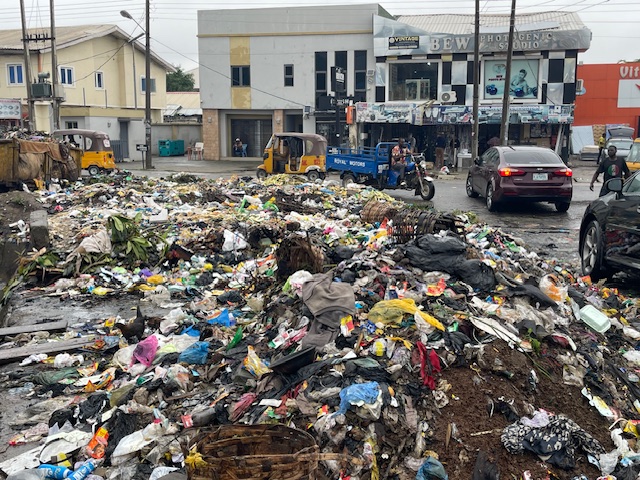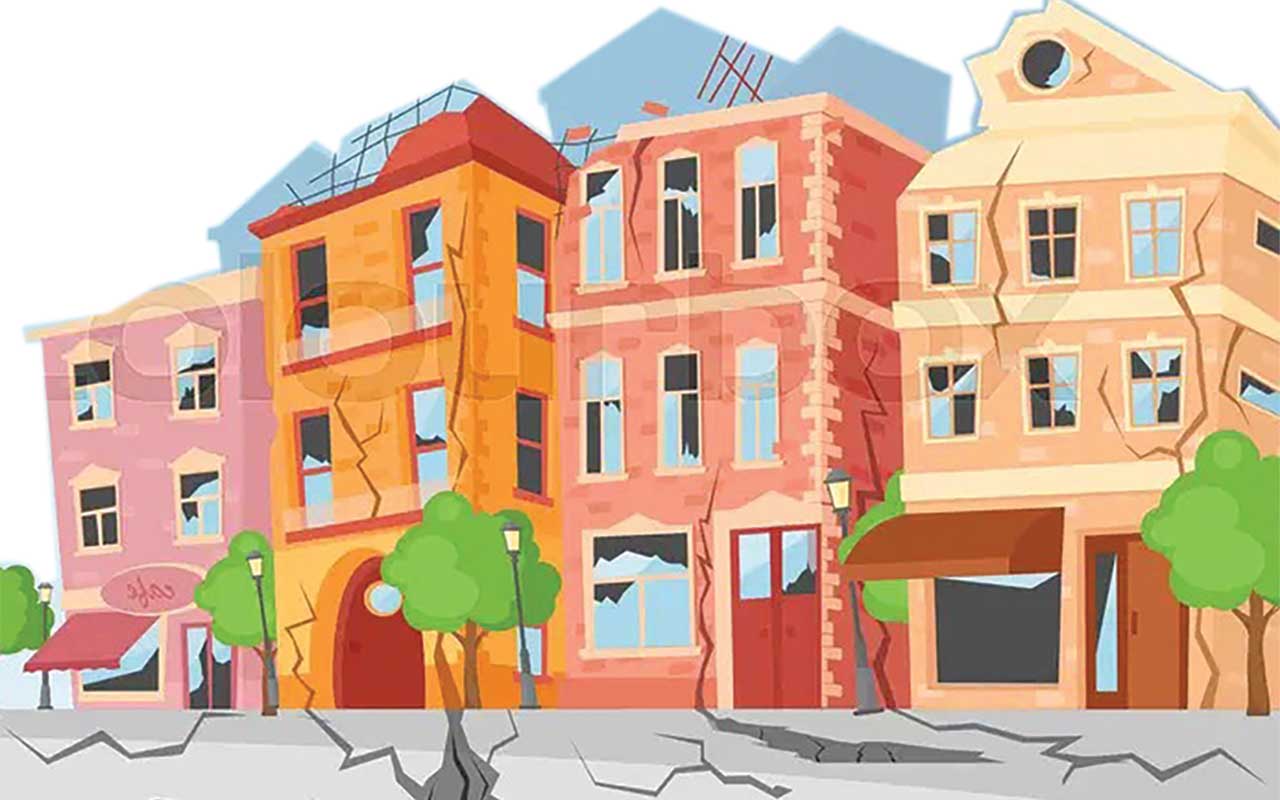
Mele Kyari has pulled it through after all! One of the public refineries has roared back to life after all. The Port Harcourt is fixed and about 200 tankers have rumbled through the forests and through the highways to gather at the famous refinery to load gasoline. What a relief! Our memories of unmet timeline and dashed hopes have faded with soothen piece of news. After seven deadlines failed to bring joy and the expected relief, Kyari advised himself not to make promises any more. He elected preference to spring a surprise on the nation. He has done well and the joy of the hour has overshadowed the pains associated with unfulfilled promises of the past months.
This goes to once more demonstrate the importance of inalienable Law of Movement, the essence of motion in the lives of all mobile creatures, men and animals. How can we forget the enthralling, indeed enchanting spectacle of columns of ants—soldier ants when they file past early in the morning, or acrobat ants, yellow crazy ants or fire ants? Creation is governed by the Law of Motion. Every animate entity is driven by motion. A man who is inactive soon becomes unwell. A man tied to his sick bed for a considerable length of time may lose the ability to walk and will have to relearn how to walk again. Not walking or exercising his limbs has violated the Law of Motion. Energy drives motion and motion is inherent in energy. Carbohydrates supply the energy to power man’s movement, nourished by the radiations of the inner man. It is, therefore, not for nothing that health experts enjoin us to take a walk from time to time. It is for good health. For auto mobiles, it is premium motor spirit, alias PMS, also called petrol. The inclusion of spirit in its nomenclature is not without significance. Spirit is a precipitation of Life.
As I did state in September, absence of motion is absence of life. Motion is life itself. Through motion when we sleep we move from one end of the bed to the other. By extension motion governs all economic activities and the link and vehicle to them are powered by energy which is why no government may attempt to hinder its unfolding and activities. A careful thought will need to be given to the cost implications of energy policies to trigger movement and flourish. We can all see the economic downturn the careless, precipitate government policy on energy management has cost the nation by way of hyper-inflation and disruption to economic activities with manufacturing companies taking a flight out of the country.
Aliko Dangote gallantly rose to the occasion to save the country. Kyari has woken from his prolonged slumber; he has delivered one of the four public refineries. He deserves our kudos and encouragement not to rest on his oars. In August this year, NNPCL revealed its plans to secure the involvement of private operators in managing the Kaduna and Warri refineries.
At the time, NNPCL spoke of its desire to collaborate with credible operations and maintenance (O&M) firms. Whether this plan will delay the rehabilitation of these two other refineries is not yet clear. But President Bola Tinubu pleased with the successful rehabilitation of the Port Harcourt Refinery expressed optimism about the Warri and Kaduna refineries. While congratulating Kyari on the success with Port Harcourt, the President urged him to from henceforth turn to these refineries to bring them back on stream as well. His Special Adviser on Media and Public Communications, Sunday Dare, gave hints of privatisation. He tweeted: “The full privatisation of Port Harcourt, Warri and Kaduna Refineries is in progress.” He went on: “With full local refining gradually being met, the days of fuel queues will end.”
The privatisation, of course, is expected to return the country to the good old days when the first petroleum refinery in Nigeria, NPRC refinery at Alesa-Eleme near Port Harcourt, was established. At the time, it was a 50/50 joint venture owned by Shell and BP. Run efficiently by BP, it was a huge commercial success, a profitable business concern. When it was commissioned it was producing 38,000 barrels per day. With increases in local demand, the capacity was increased to the vaunted 60, 000 barrels in 1968. The Federal Government came into it by first acquiring 60 per cent equity, albeit in compliance with OPEC decision at the time, 1974, and finally it took 100 per cent equity in 1978. The government, a military administration, attributed the acquisition to reluctance of private sector interest in refinery because they saw it as highly capital intensive. Between 1975 and 1989, the Federal Government built Warri, Kaduna and Port Harcourt— that of Port Harcourt adjacent to the old refinery such that they are referred to as a two-arm refinery. General Yar’Adua had said at the time that the latter refinery was built mainly for export.
Experts say the greatest challenge before the management and operators now is the plant’s technical integrity for safe and continuous operations. The installed capacity of the refinery is 60,000 barrels a day which was achieved in 1968. The last time this old refinery was successfully operated was in 1989. The new 150, 000 bbl/d plant was mechanically completed in December 1988 and it went into operation in March of the following year, 1989, after a successful contractual performance test for all the units. The first attempt to integrate the old crude oil unit with the new plant in 1989 was unsuccessful. It was the same story in 2014 when a South Korean company was invited to assist the refinery management’s efforts. Because many failed sections could not be renewed, even with some equipment repairs, the effort was abandoned.
The public refineries had a combined capacity of 445,000 barrels per day. They eventually rolled out, producing what satisfied the nation by 1991. Between 1990 and 1992, Nigeria was self-sufficient in petroleum products from three of the NNPC refineries. The Warri and Kaduna refineries produced over 70 per cent capacity, churning out Premium Motor Spirit. Port Harcourt Refinery was producing above 90 per cent capacity and there was enough for export to Ghana, Togo and some other West African countries. In addition 30, 000 dwt vessels were transported to Lagos by sea every other day, and PMS, AGO and Kerosene were sent through PPMC pipelines to Aba and Enugu depots. Kaduna (KRPRC) was pumping all products by PPMC pipeline through Gusau and road tankers in the North. Warri (WRPC) was pumping products through PPMC 2C pipelines from Mosimi to Ibadan. The deterioration of the refineries and in attendant activities began in 1993 gradually failing to produce above 20 per cent of their combined capacity but the final collapse occurred in 2019.
While President Tinubu refines his thoughts on privatising the public refineries, Kyari, the Group Managing Director/ Chief Executive of NNPCL, should concentrate his efforts in bringing them to life in the meantime. In that way there will be a surfeit of petroleum products in the country as well as the much desirable competition.
The legend that invites reflection
I REFERRED fleetingly two weeks ago to the assertion by the penultimate Ooni of Ife, Oba Okunade Sijuwade that Creation began at Ile-Ife. It was an assertion without basis. It must, therefore, compel reflection. Where was Oba Sijuwade coming from when he said confidently that Creation began at Ile-Ife? That the garden of Eden was at Ile-Ife. What was he sensing? To reinforce his sensing, he rekindled memories of dispersal from out of Ile-Ife and proudly stated that Remo in Ijebu moved from Ile-Ife, citing the Itsekiri of Warri Kingdom, the Aworis led by Olofin Ogunfunminire who founded Lagos; Otta in Ogun State; Ijanikin and Isheri in Lagos.
It is a legend that has passed from one age to the next, from one century to the other and one decade to the next one. The modern man, characteristically, cannot pay attention to this even though links of ancestral roots hardly leave many a man. Oba Sijuwade was wont to add that what is called Olojo Festival, the age-long Festival is staged yearly at Ile-Ife to commemorate the story of Creation. Creation, of course, could not have started from Ile-Ife. It is something else that may have happened, which owing to limitation of recognition and knowledge was without doubt mistaken for the beginning of Creation. Creation did not begin with this earth. This earth is in Subsequent Creation; the Subsequent Creation contains seven universes. Called churches, the universes are listed in the Book of Revelation as Ephesus, Smyrna, Pergamum, Thyatira, Sardis, Philadelphia and Laodicea (Revelation I: 11). Our earth is just a planet in the solar system and a solar system is anchored, built as it were, around the sun, and the sun is just one of the billions of stars in our galaxy, the Milky Way. The Milky Way itself is only one of billions of galaxies in our universe, according to scientists. Our universe out of the seven is Ephesus. Given all these, it is not hard to see that the earth is no more than a speck of dust. The earth is a part of the World of Gross Matter in Subsequent Creation, and like the tip of fountain pen as the picture before our gaze, it is situated at the outermost end of Creation. Subsequent Creation which Ifa Corpus had led the Yoruba to recognise and which they call Asehinda Aiye is not part of the First Creation, which they refer to as Akokoda Aiye. According to Stephen Lampe in his book, The Primordial Laws of Creation, “The size of the known physical universe as well as the complex and great speeds of the motions of its members are simply mind-boggling.”
There are Realms and there are plains of existence in Creation. The First and actual Creation that issued out of the hand of the Creator is spiritual and it is everlasting. There is Primordial Spiritual inhabited by those Created in the image of the Almighty and there is Paradise, the Spiritual Realm to which human spirits return as Home after their sojourn on earth evincing successful completion of their development in the material plane from unconscious spirit germs to self-conscious and noble human beings who have washed their dirty linen clean, that is, nothing of the material clinging to their spirits.
How did human spirits find themselves on earth when their supplication for conscious existence to be permitted the Grace to partake of the splendour and joyful activities in the Spiritual Homeland, Paradise, was granted? I want to refer the reader to the help provided by the unique spiritual enlightenment spreading on earth in these times, In The Light of Truth, The Grail Message, which states as follows:
“A sower went forth to sow! The region where the finest ethereal substance of Creation borders upon the Realm of Animistic Substantiality is the field in which the human spirit-germs are sown. Small sparks go out from this Animistic Sphere across the border and sink away into the virgin soil of the finest ethereal part of Creation, similar to electric discharges during a thunder storm. It is as if the Creative Hand of the Holy Spirit were sowing seeds in the World of Matter.”
What has come out clearly from this passage is that Creation did not begin with this earth; there are other planes of existence and from one of the planes close to the earth, the Holy Spirit sent human spirits seeking development to this world like any seed planted in the soil of this earth. We may begin to sense that Adam and Eve were representatives of human race, Adam, man and Eve, womanhood!
We learn further: “When spirit sparks fly over into the soil of the ethereal outskirts of the World of Matter, a gaseous covering of the same substance as the most delicate of all the regions of the World of Matter immediately envelops them.”
What the early people at Ile-Ife, who were open, may have sensed which is what has passed from generation to generation over the ages was the sending of higher Beings to incarnate among various peoples, be it in Africa, Europe, Asian countries or Southern America to lead them from one stage of development to the other. According to the Grail Message, “It lies within the working of Omniscience that at very definite periods of maturing in Creation ever new revelations are given to human spirits about the working of God.
“In the times of the beginning a Created Being was also incarnated here and there among maturing tribes of the ones developing from spirit germs. His task was to lead and to proffer the connection to the particular next step in the necessary upward striving of all that is spiritual. These were the great Turning-points there in the times of the beginning.”
“Later on came the Prophets as blessed ones! In this way the Infinite Love from the Light worked to help and assist the human spirits with ever new revelations whenever Creation was mature for it, until finally there came the Sacred Tidings about the Divine and Its Working.
“Thus at the great Turning-Point now operating there also comes the absolute necessity for an extension of knowledge…God is the Lord, He absolutely alone, and whoever does not want to acknowledge Him humbly just as He really is, and not as you imagine Him to be, cannot rise up for the new life.”
Onnoghen laughs last
THE victory of Walter Samuel Onnoghen the erstwhile Chief Justice at the Court of Appeal did not come to me as a surprise. I followed the drift of the trial closely in 2017. Two crucial points informed my stance and confidence that he would be victorious at the end of the day. Justice Onnoghen’s legal argued as follows which I noted:
“Judicial precedent as encapsulated in a recent Appeal Court’s decision in Nganyiwa Versus Federal Republic of Nigeria (2017) LPELR-43391 (CA) to the effect that any misconduct attached to the office and functions of a judicial officer, must first be reported to and handled by the NJC pursuant to the provision of the laws.
“Consequently, placing reliance on a recent decision of the CCT on a similar charge FC lodged against another Justice of the Supreme Court, Sylvester Ngwuta, the CJN’s legal team, maintained that FG’s decision to sideline the NJC stripped the tribunal of its jurisdiction to entertain the instant case.”
The second plank on which I rested my confidence was the statement by CJN Onnoghen assistant. The headline screamed: “Lies from hell! DSS never found $9 million (Dollars) in my house.” The statement read as follows: “The attention of His Lordship, the Honourable Chief Justice of Nigeria, the Hon. Justice Walter Samuel Nkanu Onnoghen, GCON, has been drawn to reports circulating online alleging that the Department of State Services (DSS) allegedly found $9 million (Dollars) in his home. His Lordship the CJN advises the public to disregard these infantile lies most probably intended to impugn the good name of the Hon. Chief Justice.”
I wrote twice on the Justice Onnoghen’s trial and concluded as follows: “The trial of Chief Justice Walter Samuel Onnoghen will diminish us all. The able lawyers must deploy their knowledge of law and their skills that the CJN does not go into the dock. What is at stake is beyond the denigration of a Chief Justice, the humiliation of the head of the Nigerian Judiciary.” I hinted at what former President Olusegun Obasanjo would have done. Rather than disgracing him, he would have, if it must come to it, appointed him as an Ambassador!
NEXT WEEK: A re-run of one of the articles and Legal Luminary Afe Babalola’s statement on the subject.






